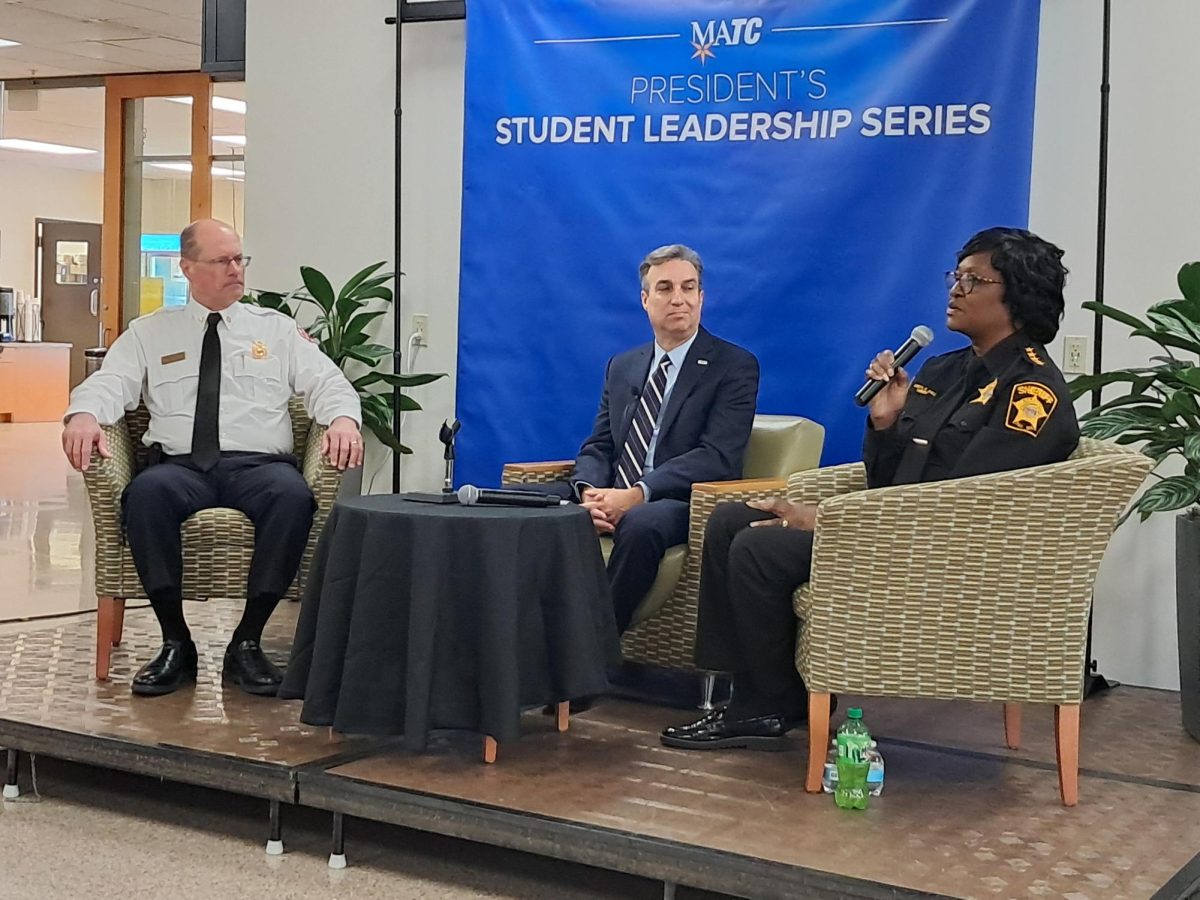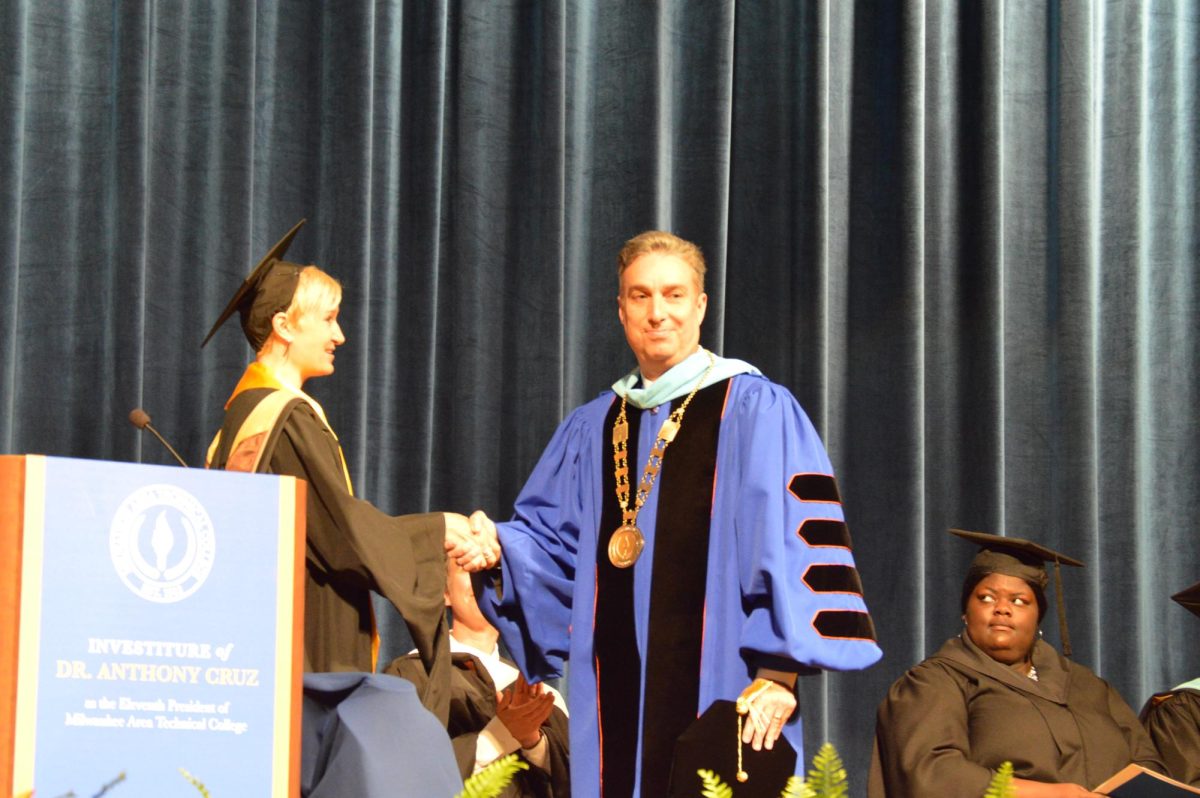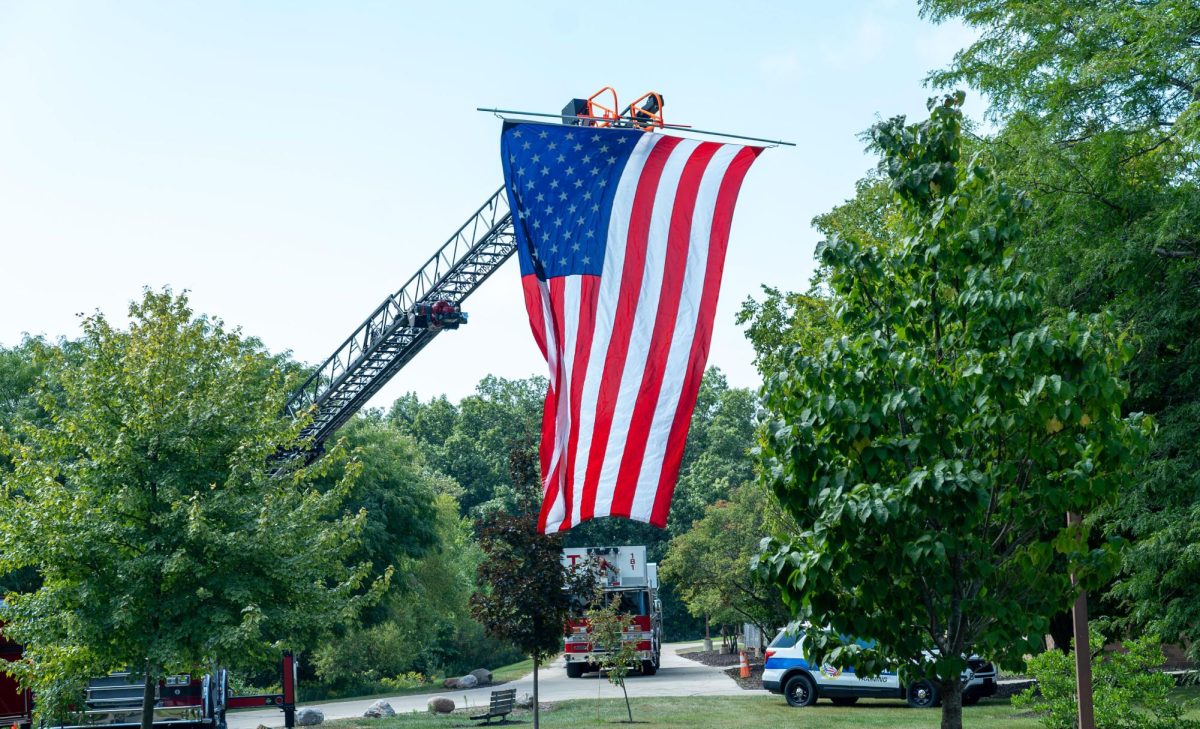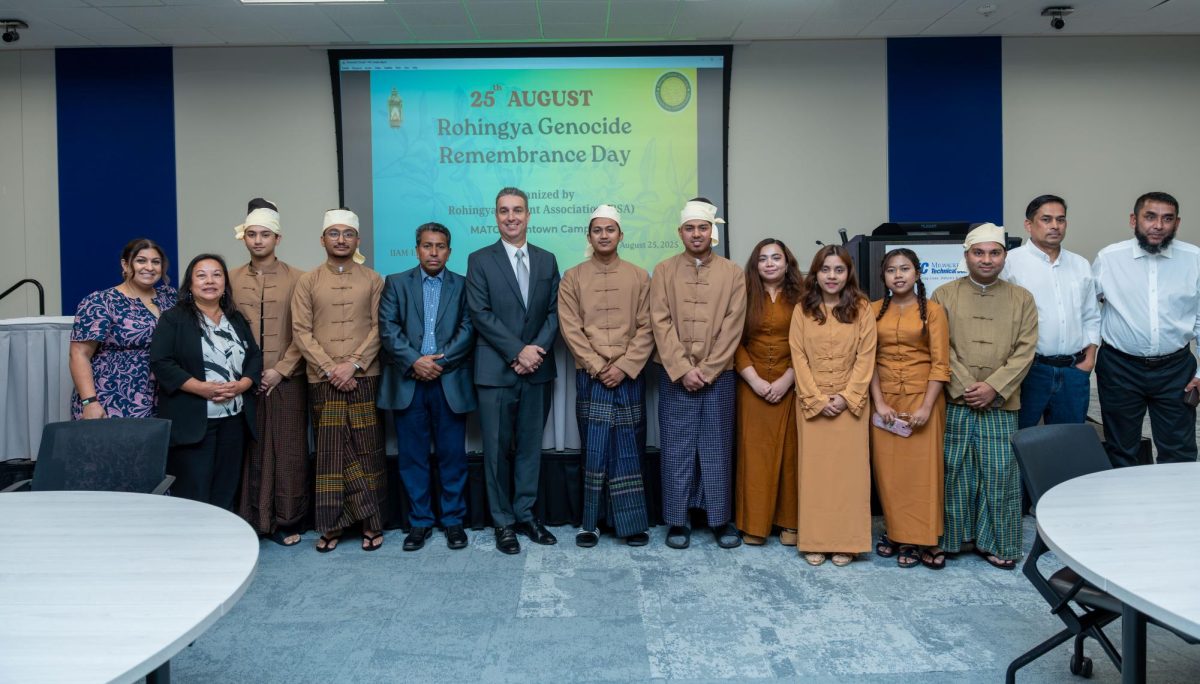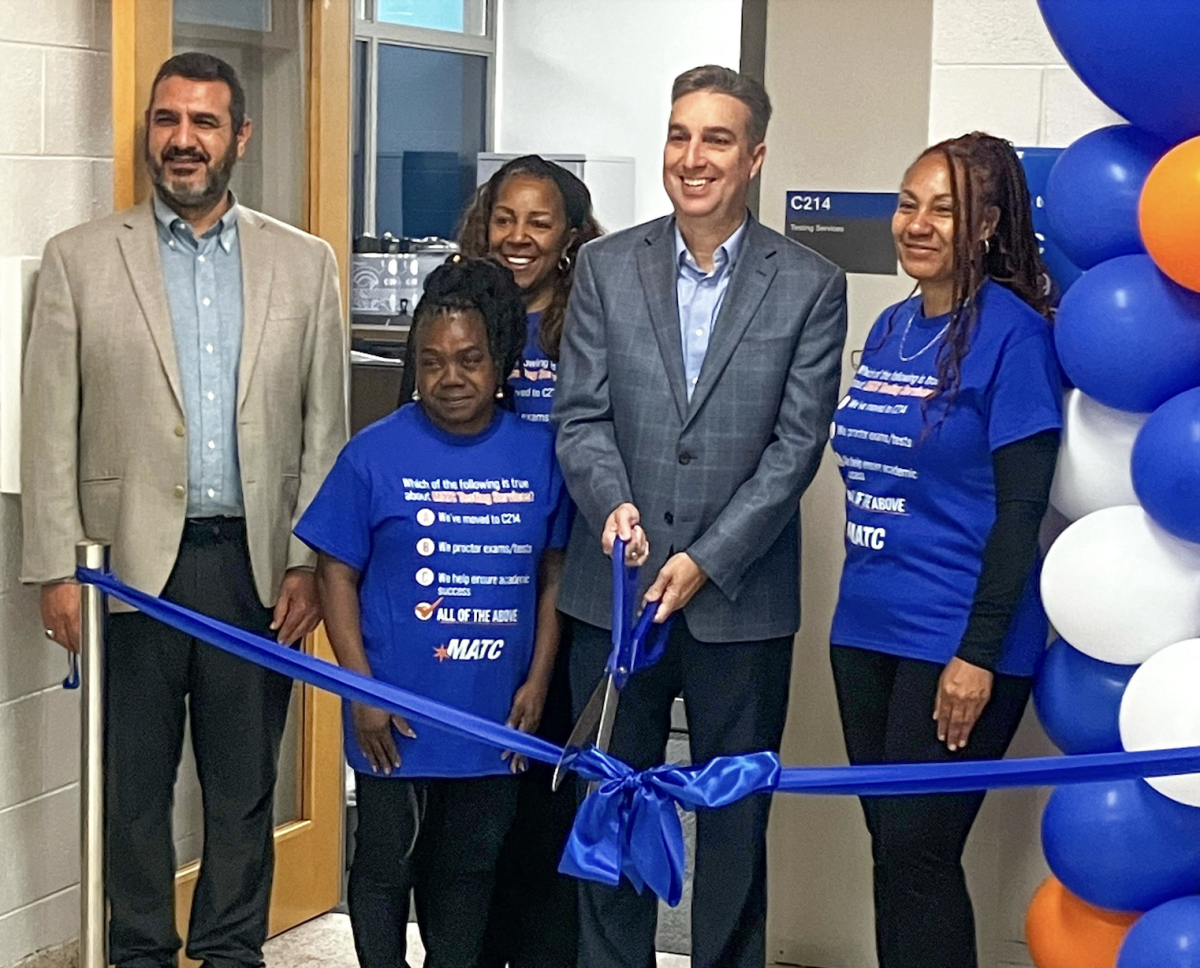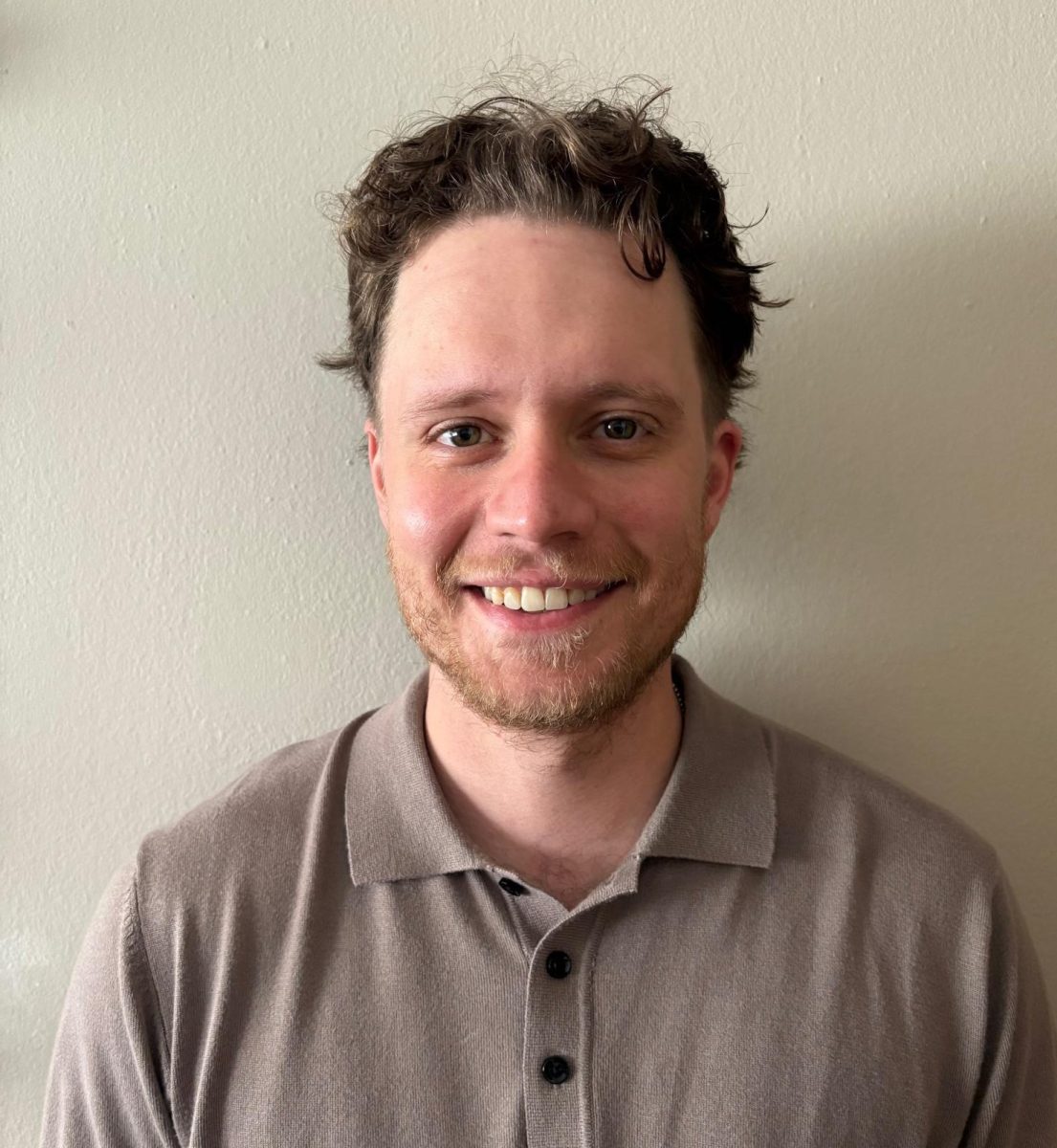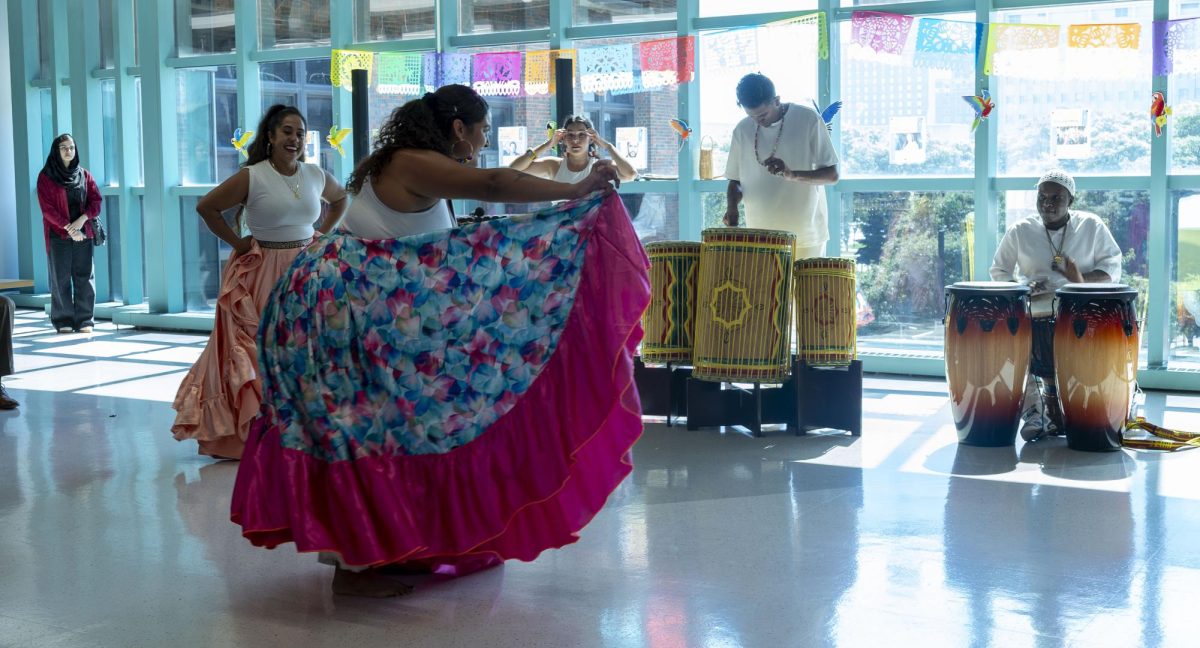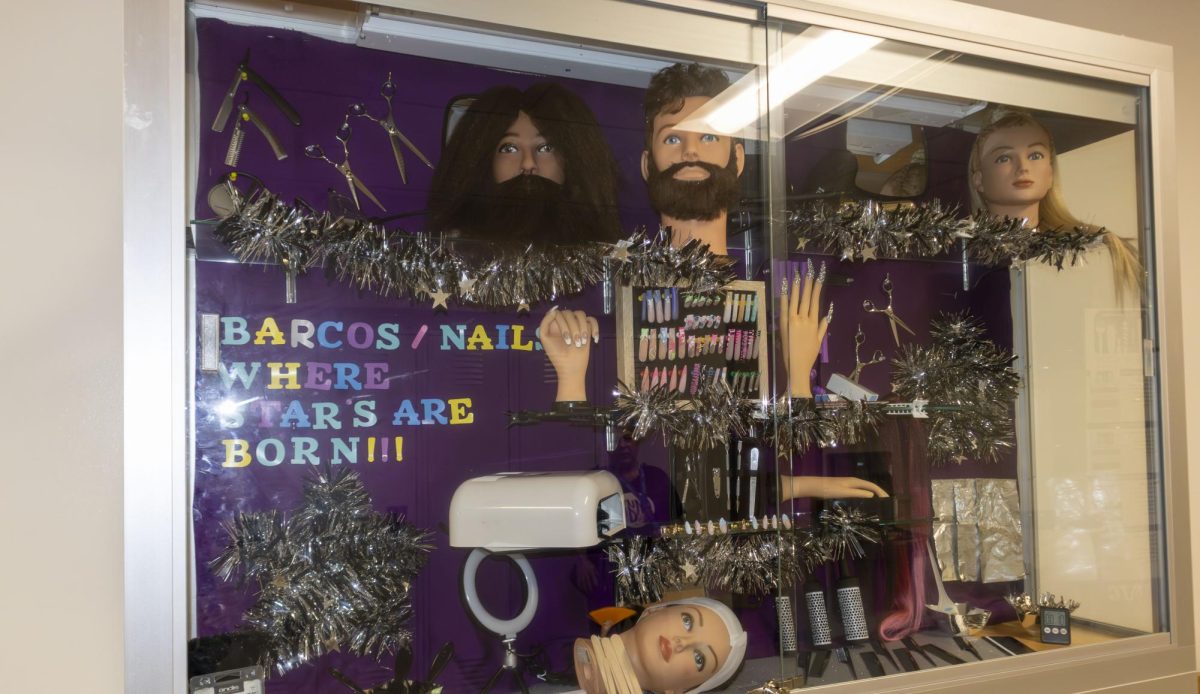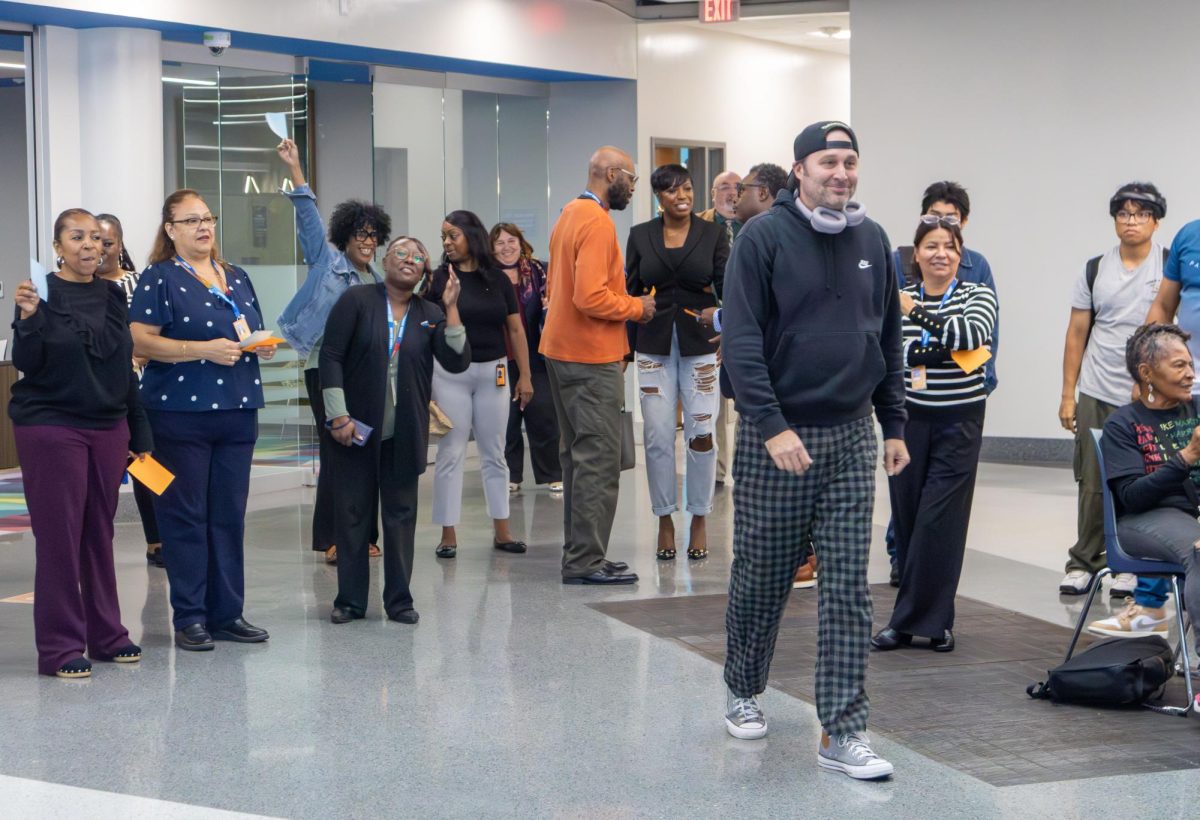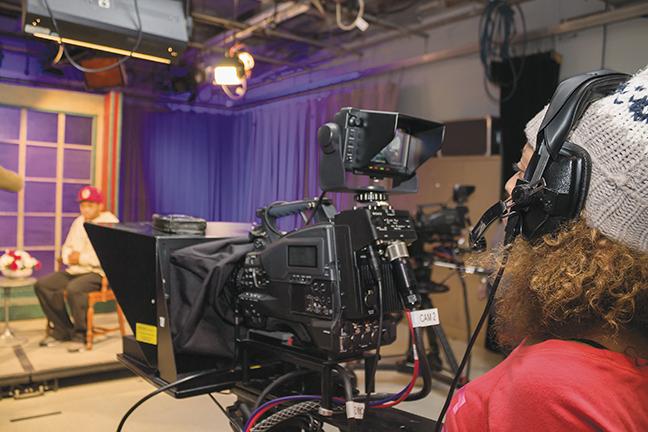MPTV integrates hands-on experience with curriculum through television production program
Photo by Jamie Cannestra/Times
Savannah McKay preps the camera for Anthony Allen’s video interview in the MPTV studios at MATC’s Milwaukee campus. TV production students learn how to set up and produce video segments in MATC’s Television and Video Production program while working with MPTV.
What makes MATC stand out amongst big schools is the hands-on experience that it has become known for. The Television and Video Production program (TVP) truly benefits from this asset. Not only do these students get to work with cutting edge technology, they are also a part of a fully functioning television station. They provide studio production support alongside employees for Milwaukee Public Television (MPTV), which is integrated into the TVP program and curriculum.
The relationship between the program and the station is special. Students act as interns in their field of study while learning. MPTV stations are members of PBS and are produced out of the C Building located at the Downtown Milwaukee campus. This department consists of two floors that students get full access to on a daily basis. MPTV and the TVP program have a long, intertwined history with MATC and each other.
Innovation has been a major factor in the growth of MATC, which is why it has become one of the Midwest’s largest community-based technical colleges. Television was still in its developmental infancy in 1952, but our forefathers saw potential when creating the TVP program. Today, this program continues to go strong. It prepares students for careers in the production, operation and programming of broadcast television. Standard admission requirements apply, anyone who is interested can enroll. The curriculum includes multiple TVP workshops along with set development, lighting, and editing classes. Participants get hands-on experience in the high definition studios of MPTV, making it a popular program.
In 1957, shortly after TVP was born, MPTV began broadcasting programs to area homes. Live theater, ballet performances, language tutorials and local events were some of the station’s first aired programming. MPTV eventually took over channel 10, becoming the nation’s 28th educational television broadcaster. It was licensed to the Milwaukee Board of Vocational, Technical and Adult Education, which directs MATC. Since that moment students and faculty members of the TVP program have been working closely with MPTV on its programming.
Currently, MPTV provides a wide variety of quality TV shows on channels 10, 36 and in HD as well as sub channels. The station broadcasts everything from news to cartoons. It also airs long-standing TV shows such as “Frontine,” “Sesame Street,” and “Letters to Santa” which is produced in studio. Kevin Pulz, an instructor of the TVP program who works personally with MPTV, has been a producer and director for 25 years. He has helped provide more information and insight on the program, station and the relationship between the two.
“There is the academic program and then there is MPTV, which is a community service from MATC,” Pluz stated. Although the program and station are separate entities, they work alongside one another. “MPTV is the professional entity that our students, on a daily basis, integrate into their curriculum almost like full-time interns.” Students work directly with state-of–the-art equipment in real studios on real TV shows. Staff members of the station and students move freely amongst each other. “Students walk around here as if they are staff,” Pulz shared. The close knit relationship has grown over the years, said Pulz, “The development of the station is parallel to the development of the television instructional program.”
There are aspects of MPTV that make MATC stand out amongst other schools. One of those aspects is the fact that our school holds not one but two public broadcasting licenses. “There are very few universities that hold two licenses and even less two-year technical colleges that hold any for TV,” Pulz shared. “So in that way we are quite special.” Because of the opportunities this produces, students get a full array of benefits.
Warren Barth, a second year student of the program explains, “It gives you a glimpse of how it really is working on a television station.” Barth continued to say, “We make our own television shows, working on the show directly or doing camera work or audio, things like that.” When asked what he feels is the most important aspect of working with MPTV through the TVP program Barth stated, “We are unique because we get a lot of access to hands-on experience with cameras and editing equipment. I chose MATC for that hands-on experience, rather than just reading it in a book.” As for MPTV, Barth feels it is way better than other stations, “While other stations are almost all straight news, public TV gives you more freedom to do different programs. We do local shows; where as other channels do more national shows.” Barth looks forward to continuing his education and can’t wait for this to be his full-time profession.
When it comes time to join the workforce, students already have a well-established connection to a TV station. This allows students to find work more easily; in fact, many students go on to become full-time employees at MPTV. Duane Rodriguez is an example of this. He graduated from the program in 1982 and was hired a year later. Currently Rodriguez is an award-winning production specialist at MPTV. He explains, “I help students in their approach to the world of television, their lectures, and lab work.” This shows how students not only learn from instructors but employees of the station as well. They actually get to watch how it’s done from professionals in the field. “The students here work on our shows, when they graduate they have a full résumé of experience,” he said, adding, “The majority of people working in television in the city are graduates of the TVP program.”
Students do everything as if they are full-time employees. They plan the set, design it, light it, everything. “The students that work on these shows run the camera, teleprompter, floor direct, edit, and learn makeup,” Rodriguez stated in regards to the students role for the station. He explains that this profession and station allows for creative expression as well. “A requirement of graduation is that they have to put together and produce their own half-hour show to be aired.” This allows students to have full creative rein of what they want to do. Rodriguez recalls a time that stands out, “We had a student that did a skateboard show and actually brought a skate ramp into the studio.” This is an impressive example of how students use what they learn while incorporating their interests into their work. “We have great equipment, great instructors to teach the students, and a great facility.” Rodriguez concluded, “This is the greatest job in the world.”
Students enrolled in the TVP program have had the opportunity to handle the operations of MPTV for over 40 years and this long-term relationship shows no signs of slowing down. Television production is a progressive career in a time when technology is a huge part of society. MPTV will continue to create and broadcast student-produced programs with the added benefit of accumulating experience for their résumé. They look for students who are self-disciplined, creative, and good at managing their time. The program is always looking to expand and encourages anyone who is interested in this profession to check out all it has to offer.

